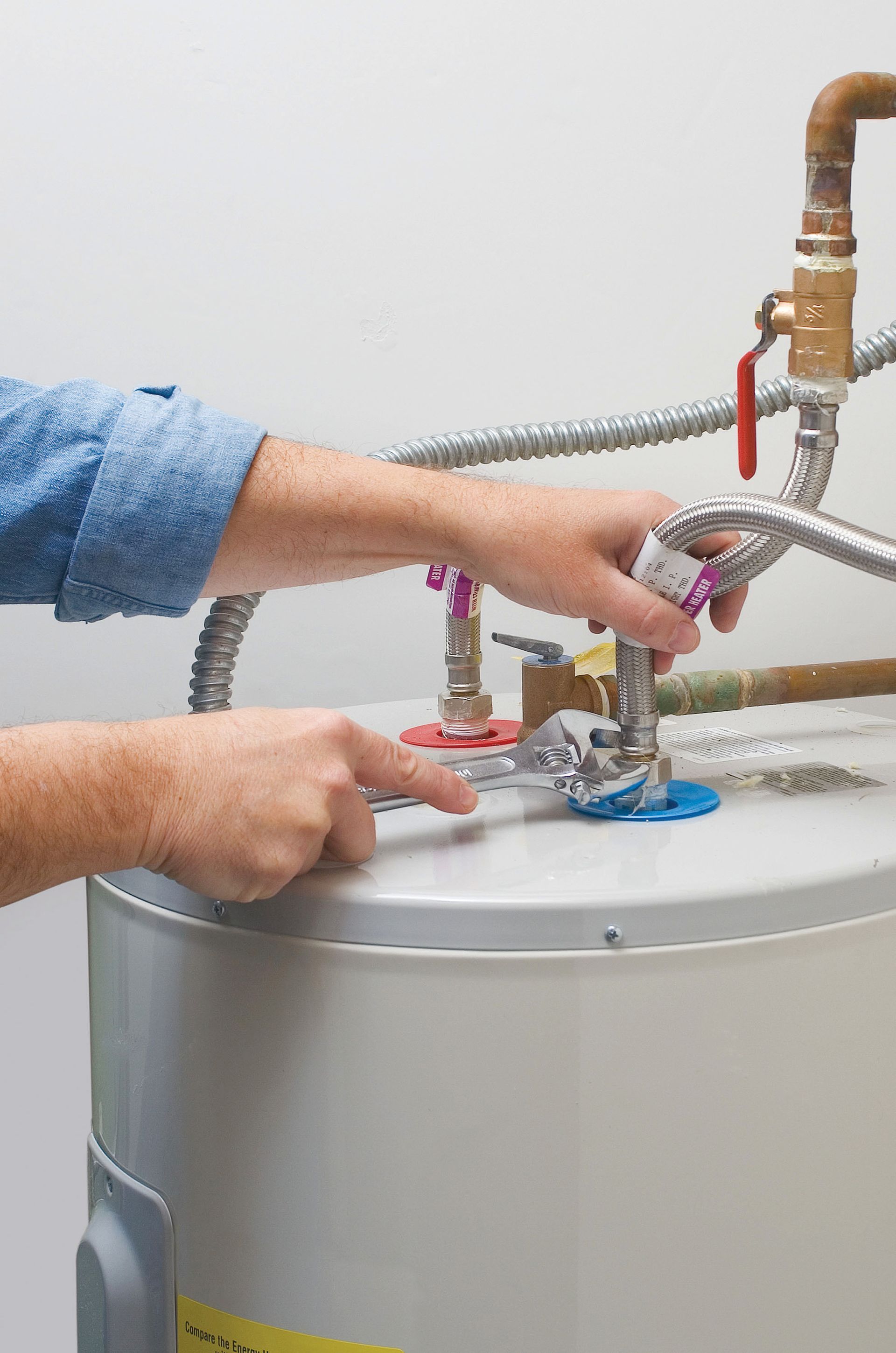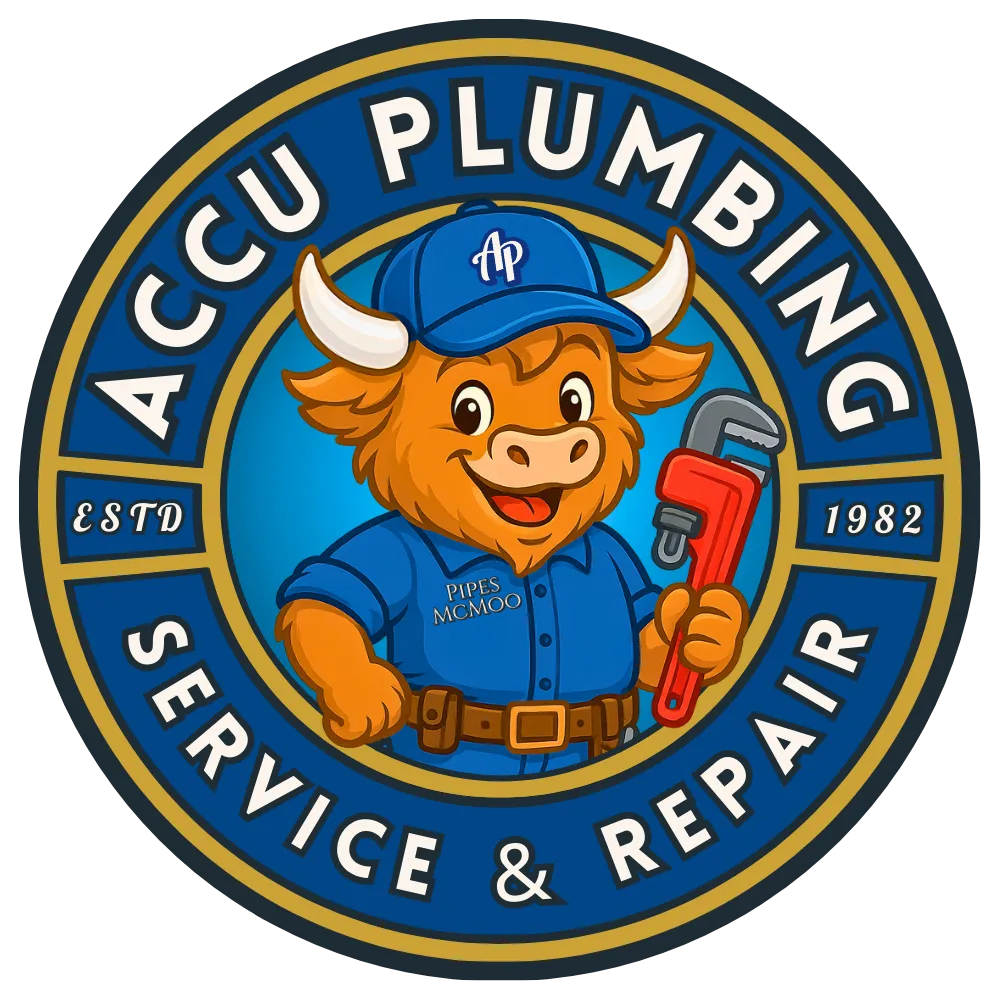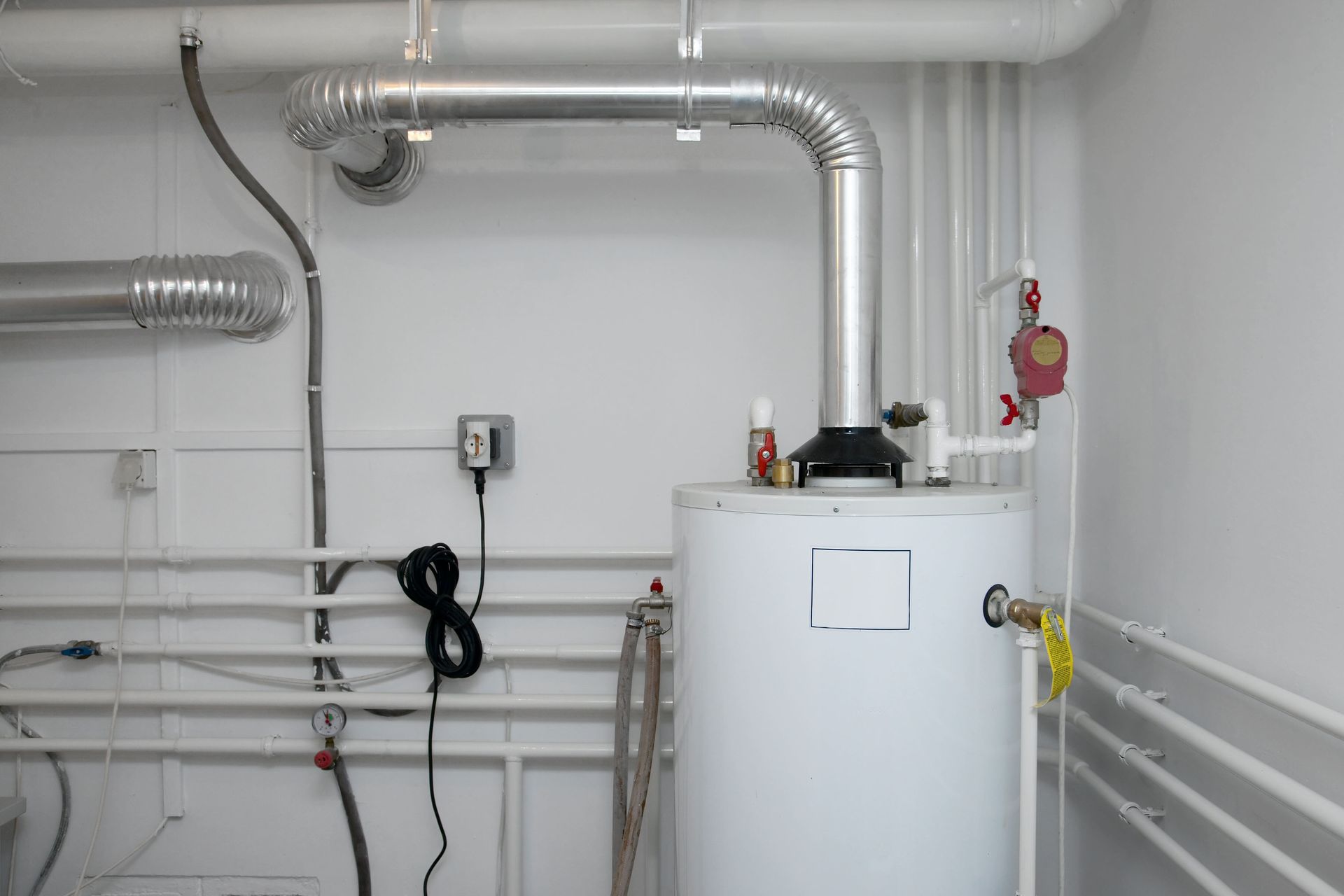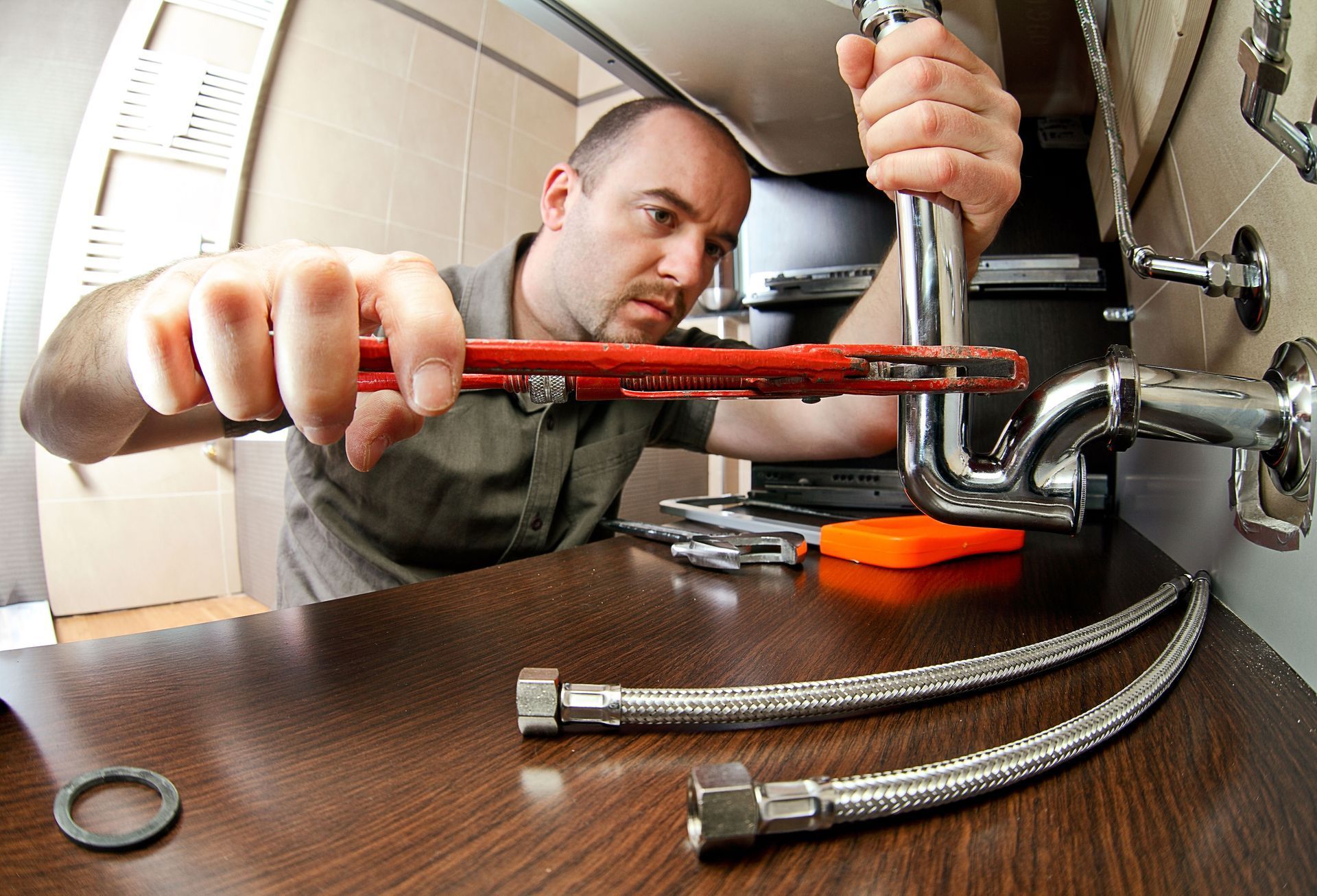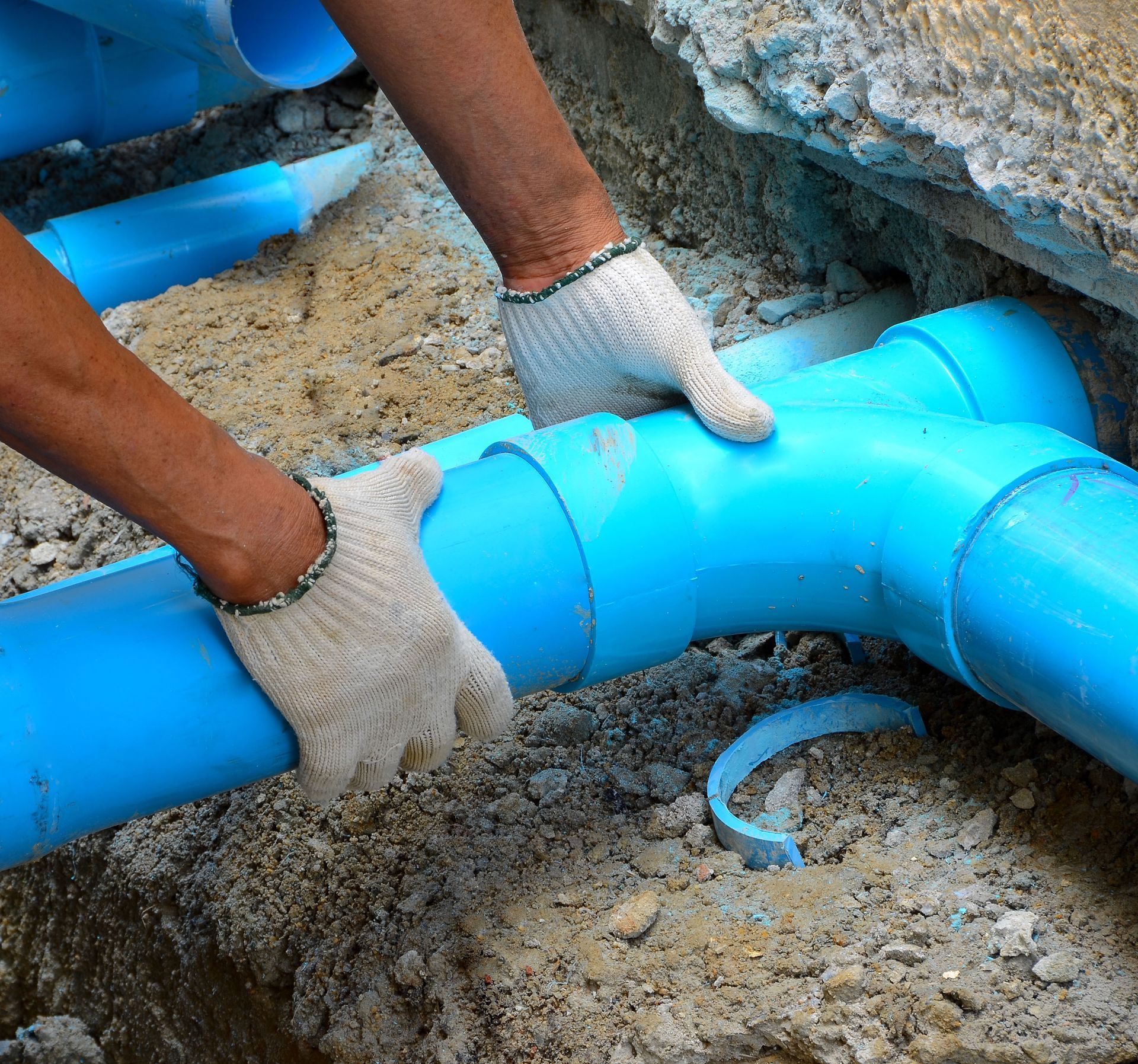October 14, 2025
In our homes, water heaters play a vital role. However, maintaining their efficiency and longevity requires expertise. In this article, we will explore how professional services can significantly extend the life of your water heater, providing peace of mind and financial savings. Let's delve into strategies that can extend the lifespan of a water heater and potentially surpass average expectations.
1. Regular Maintenance Checks
Scheduling Inspections
Professional scheduled inspections are essential for maintaining the integrity of your system and avoiding the need for water heater repair. Experts are equipped to identify issues that may not be visible to the untrained eye. Regular checks help to ensure that minor problems do not escalate into significant, costly repairs. With their thorough inspections, professionals can often detect early signs of wear and tear. According to This Old House, the average lifespan of a tank water heater is between 10 and 15 years. Taking a proactive approach to maintenance is crucial in extending the life expectancy of your water heater.
Identifying Early Signs of Wear
Early signs of wear and tear, such as rust or corrosion, can significantly impact a water heater's efficiency. Professionals can pinpoint these issues before they compromise the unit's functionality. Identifying such signs early allows for timely interventions, which help avoid more extensive damage. Early detection and water heater repair can result in significant cost savings. Regular monitoring of the system by professionals can ensure that your heater operates at optimal efficiency for longer.
Ensuring Safe Operation
Ensuring the safe operation of a water heater is paramount, particularly given the risks associated with gas leaks or electrical malfunctions. Professionals possess the knowledge and tools to verify that all components of the heater function safely. They can also calibrate any part of the system that could pose safety concerns. Their expertise in maintaining a safer home environment provides homeowners with peace of mind. This specialist intervention plays a key role in preventing accidents while extending the life of the appliance.
2. Flushing the Heater Tank
Removing Sediment Accumulation
Over time, sediment can accumulate at the bottom of a water heater tank, reducing efficiency and causing damage. Professionals perform tank flushing to remove these deposits as part of their water heater repair services. This process involves draining the water, dislodging mineral build-up, and rinsing out the system to restore functionality. Regular flushing is crucial in maintaining the heater's heating capability and water cleanliness. The absence of sediment leads to more efficient heating and helps prevent premature wear of the tank.
Improving Heater Efficiency
Your water heater's efficiency can be drastically improved by ensuring that internal surfaces are clean and free of sediment. Accumulated deposits can create insulation barriers, requiring your heater to work harder to produce hot water. Flushing removes these deposits, allowing the heating element to operate without obstruction. This form of maintenance not only enhances efficiency but also reduces energy consumption. Periodic professional flushing is a well-recognized strategy to extend a heater's productive lifespan.
Extending Element Lifespan
The heating elements inside a water heater are essential for warming up water. A sediment-free environment eases the operational demand placed on these components. By effectively flushing the tank, professionals help extend the useful life of these elements. This active maintenance prevents overheating and reduces the risk of element failure, requiring more extensive water heater repair. Longevity of these elements directly translates to an extended overall life for the water heater system.
3. Adjusting the Thermostat Settings
Ensuring Optimal Temperature Settings
A key service provided by professionals is adjusting thermostat settings for optimal temperature. Setting the thermostat too high can damage the heating elements and increase utility bills. Professionals recommend a safe and efficient temperature setting, usually around 120 degrees Fahrenheit, in our experience. This balance offers a perfect blend of comfort and energy efficiency. Lesser strain on the heating elements directly correlates to a prolonged lifespan and a reduced need for water heater repair.
Reducing Excessive Heat Stress
Excessive heat stress caused by improper thermostat settings is a common cause of component failure. Professionals help mitigate this risk by calibrating the thermostat to prevent overheating. Such adjustments protect the tank and its components from undue stress. Ensuring that the system operates within safe temperature limits reduces wear and tear. Consequently, this strategic calibration promotes longevity through reduced mechanical stress.
Balancing Energy Efficiency
Another key factor that homeowners should closely monitor is energy efficiency. By adjusting the thermostat, professionals can help achieve a balance between adequate heating and energy conservation. Reducing unnecessary heating not only cuts utility costs but also mitigates environmental impact. Efficient operation promises prolonged operational capability. Professional intervention thus guarantees optimal balance, conserving energy while ensuring user satisfaction.
4. Corrosion Prevention Strategies
Inspecting and Replacing Anode Rods
The anode rod is a crucial component in preventing water heater corrosion. Professionals routinely inspect these rods, checking their level of degradation. In our experience, anode rods require replacement every few years, a service often best performed by water heater repair specialists. Timely replacement can protect the tank from rust and extend its service life significantly. Proactive maintenance of the anode rod ensures that your system does not succumb prematurely to corrosion-related failures.
Using Corrosion Inhibitors
Professionals often utilize corrosion inhibitors to prolong the life of water heaters. These chemicals form a protective layer on the interior surfaces, preventing corrosion from settling in. This preventive measure is particularly important in areas with hard water conditions. Specialists know the optimal applications and concentrations necessary for effectiveness. Using these inhibitors as part of a regular maintenance routine can greatly enhance the longevity of your appliance.
Understanding Water Chemistry
Understanding the chemistry of the water circulating through the heater is essential to managing corrosion. Professionals are equipped to analyze water quality and adjust treatment solutions accordingly. They can adjust the pH levels or use water softeners to mitigate corrosive effects. This scientific approach is critical in environments with high mineral content in water sources. Tailoring the approach based on water chemistry ensures that every precaution is being taken to protect the system.
5. Upgrading Key Components
Installing High-Efficiency Elements
Component upgrades are an effective way to enhance your water heater's efficiency and lifespan. High-efficiency heating elements are designed to heat water quickly while using less energy. Professionals are adept in selecting and installing these advanced components to maximize performance. Such upgrades directly lead to a reduction in energy consumption and operational costs.
Modernizing Control Units
The modernization of control units is another avenue for extending water heater life and avoiding the need for water heater repair. Professionals can replace outdated control panels with contemporary solutions. Modern units offer precise controls over heating cycles, allowing for customized settings that meet user needs. This upgrade can greatly improve operational efficiency, adapting to the user's schedule and preferences.
Utilizing Better Insulation
Enhancing a water heater's insulation is a key strategy to improve energy efficiency. Professionals install insulating blankets or upgrade tank insulation to reduce heat loss. By retaining more heat, the water heater requires less energy to maintain desired water temperatures. This reduced energy demand can lower operational costs while improving performance consistency. Expert insulation enhancements solidify the heater's efficiency and contribute to an extended system lifespan.
With the right professional support, your water heater can operate efficiently and last well beyond its expected lifespan. Incorporating these expert-recommended approaches will not only preserve your heater's functionality but also enhance safety and performance in your household. If you're in need of water heater repair or maintenance services, contact our team at ACCU Plumbing LLC today!
